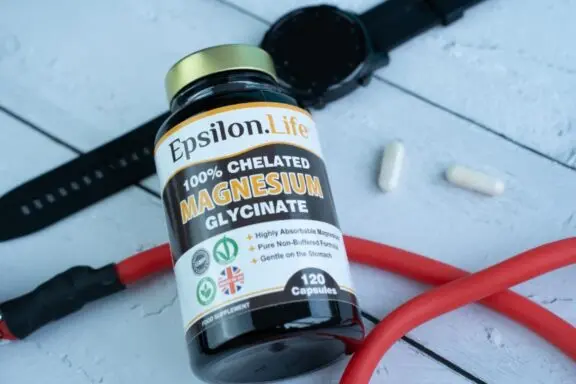There’s no cure for aging, but resveratrol, a compound found in many plants, has given mice longer lifespans and has provided other indications of rejuvenation. While the compound may not be able to remove wrinkles or restore hair, it’s at least a step in that direction: after all, you’re only as old as you feel. But what exactly is resveratrol? Where can we find it? And what can it do for us when taken as a supplement?
What is Resveratrol?
Resveratrol is an extract that can be found throughout the plant kingdom. It is characterized as a phytoalexin, which means plants produce it to fight off parasites. In some sense, it could be thought of as a poison, which is why its health effects weren’t examined until more than 50 years after its initial discovery.
However, poison is defined by dosage, not necessarily chemical, and in proper amounts, studies suggest that resveratrol could possibly fight cancer and cardiovascular disease as well as increase endurance and even extend lifespans.
Currently, results from human trials is lacking and scientists haven’t identified all the mechanisms by which resveratrol can work, but there is promise from animal model studies and even small scale human studies to indicate that appropriate levels of resveratrol could be beneficial to us and perhaps even increase our lifespans.
Sources of Resveratrol – Resveratrol foods
Resveratrol can be found in many plants and fruits, across several species and even genera, most notably the skin of grapes and, as a result, red wine, though grape juice tends to also have high concentrations without the alcoholic content. Many even suggest that the high concentrations of resveratrol in wine could be an explanation for the “French Paradox,” which notes that even though French diets are high in saturated fats, France has a relatively low rate of cardiovascular disease.
Of course, resveratrol isn’t only found in grapes. It can be found in many berries as well, including cranberries, blueberries, and jackfruit. Flowers, including some types of orchids and lilies, can have resveratrol. Many plant roots also have high levels of resveratrol, which may be why they’ve been used for traditional Chinese medicine. The roots of Asian knotweed, for instance, has been used to treat fungal infections and cardiovascular disease. Though there are many sources of resveratrol, it can be foods don’t always have consistent levels. Since resveratrol is often produced in response to a parasitic attack, the amount found in a particular type of food can vary wildly, depending on season, location, or batch.
Resveratrol Benefits
One of the possible benefits of resveratrol is an extended lifespan and animal studies seem to support this hypothesis, though the results are somewhat mixed. The effect is very strong in less complex lifeforms — worms and yeast had lifespans greatly increased by the compound — though not exclusively so. One research group observed a 500% decrease in risk of death for turquoise killfish, a vertebrate species, when treated with resveratrol. Other studies looking at mice with high caloric intake have found that resveratrol could extend lifespans by around 20%. That is to say that the resveratrol mice consumed more calories, and even gained weight as a result, but still had lifespans comparable to those on healthier diets. Studies haven’t yet confirmed if this effect translates to humans, however.
Several studies have found remarkable results for the treatment of various cancers using resveratrol, though none in humans. In one study, resveratrol treatment offered mice a 70% survival rate for what was otherwise a fatal diagnosis. In another, applying resveratrol to the skin of mice reduced tumors by up to 98%. These responses seem dosage dependent as other studies with smaller amounts of resveratrol didn’t produce nearly as dramatic of results. As of right now, the mechanism by which resveratrol could prevent cancer isn’t completely understood, but the current thinking is that it doesn’t act on just one agent but, instead disables multiple carcinogenic enzymes at once. Other studies have suggested that resveratrol may induce cancer cell death and prevent the cells from spreading. Additionally, it’s been shown that resveratrol acts as an antioxidant — preventing oxygen from damaging DNA — which could also account for some of its cancer-fighting properties, though the belief that antioxidants prevents cancer isn’t necessarily scientific consensus at this point in time, leading many to think that there may be other, more significant, explanations for resveratrol’s ability to combat cancer.
One of the other major potential benefits of resveratrol is cardiovascular health. It can increase good cholesterol levels and decrease the effects of bad cholesterol, reduce tension in blood vessel walls, and lower blood pressure, to just name a few of the observed benefits. However, as in cancer, most of these effects have only been verified in mice or other animals. Still, the molecular effects of resveratrol in lab experiments along with the animal studies provide hope that these benefits could translate to humans as well.
Studies have indicated that resveratrol helps both type 1 and type two diabetics. In type 1 diabetes, the pancreas is damaged by an autoimmune response, preventing the production of insulin and, as a result, increasing levels of blood sugar. Resveratrol reduces levels of blood glucose levels for animals with type 1 diabetes and also increases insulin levels, effectively reversing the effects of the disease. It’s thought that resveratrol can do this by protecting pancreatic cells from oxidation effects and studies on rats have added support to this hypothesis. Additionally, it’s possible that resveratrol helps strengthen livers weakened by insulin deficiency, allowing them to help bring the body back to homeostasis.
Type 2 diabetes is a result of the body not using insulin correctly and becoming resistant to it. In mice with type 2 diabetes, resveratrol reverses this resistance, at least in rodent studies. Scientists have noted that even if the rodents in question have diets high in fat, cholesterol, or sugar — all possible causes of type 2 diabetes — the resveratrol decreases insulin resistance. Experiments on pigs and monkeys with type 2 diabetes showed similar benefits from resveratrol treatment.
What about humans? Several small studies have been conducted and show promise, with many reporting that diabetic and obese subjects responded well to a resveratrol treatment. Though some show no difference, several of these studies observed a decrease in blood glucose levels and lowered insulin resistance. Again, these are small studies and so it’s difficult to draw conclusions from their results, but larger studies are in the works that could provide more conclusive answers to how much of a benefit resveratrol could have when used to combat diabetes.
Animal studies have also suggested a positive effect of resveratrol on obesity, often counteracting some of the negative health effects associated with the disease. Rodents given a high fat diet lived longer, had better motor function, and had gene expressions associated more closely with what might expect from a rat on a traditional diet when also provided with a daily resveratrol supplement. Additionally, they developed less body fat as a result. Other studies recorded weight loss in mice given high fat or high calorie diets, though other studies gave similar tests and didn’t observe a change.
It’s also possible that resveratrol could help fight Alzheimer’s disease and dementia. It’s known that resveratrol can, at least in theory, prevent neuronal deterioration, and other experiments have shown that ingested resveratrol can make its way to the brain, providing an explanation for how resveratrol could work. Additionally, one study found that 6 months of resveratrol supplementation improved memory in the 50 – 80-year-old subjects they tested on. This was a small study (only about 50 participants), but the results were statistically significant and show promise.
All of this needs to be taken with a grain of salt. Mice are not humans and what works for a mouse may not scale up, for any number of reasons. Additionally, individual small studies can be influenced by improper controls or publication bias, so none of these benefits are considered hard science at this point in time. However, all of these studies show promise and hint at possibilities of larger studies on humans to test the significance of these observed effects.
Resveratrol Dosage
Much of what we know about the risks of resveratrol, as before, comes from animal studies. One study gave rats high dosages of resveratrol daily for four weeks. By the end, the only rats that died were in the highest-level group, receiving an amount that would be equivalent to 210 grams per day for a human (by contrast, most supplements provide around 1 or 2 grams of resveratrol and a glass of wine has less than a milligram). Even in this group, which received an extremely large daily dosage, 38 out of a total of 40 rats survived.
Studies in humans have found that resveratrol may cause stomach discomfort at doses of 2.5 – 5 grams a day, though not much more has been established in terms of toxicity. In one study, where subjects received small doses every four hours over the course of two days, three of them reported mild headaches, and one individual felt fatigued while another reported dizziness, though it’s unclear if any of these side-effects were actually caused by the resveratrol.
With that, there are no long-term human studies on the effects of resveratrol and while there’s no specific reason to be concerned that it may have negative outcomes after months or years of use, it’s untested and those who take it as a supplement should stay up to date on the latest research.
Conclusions
Resveratrol has had encouraging results in animal experiments and studies are underway to explore if the possible benefits (which include cardiovascular improvement, reduced risk of cancer, and improved brain activity) extend to humans and can possibly extend our lifespans.
Along with these studies, scientists hope to understand better a molecular mechanism to provide an explanation for how resveratrol can produce the effects it’s associated with.
Appropriate dosages haven’t been fully established though studies suggest somewhere between hundreds of milligrams to a few grams per day should be safe. Possible side-effects include gastrointestinal distress and headaches, though other there may be other unknown risks.
Overall, resveratrol is a promising compound that could possibly help prevent fatal diseases and possibly extend your lifespan.



